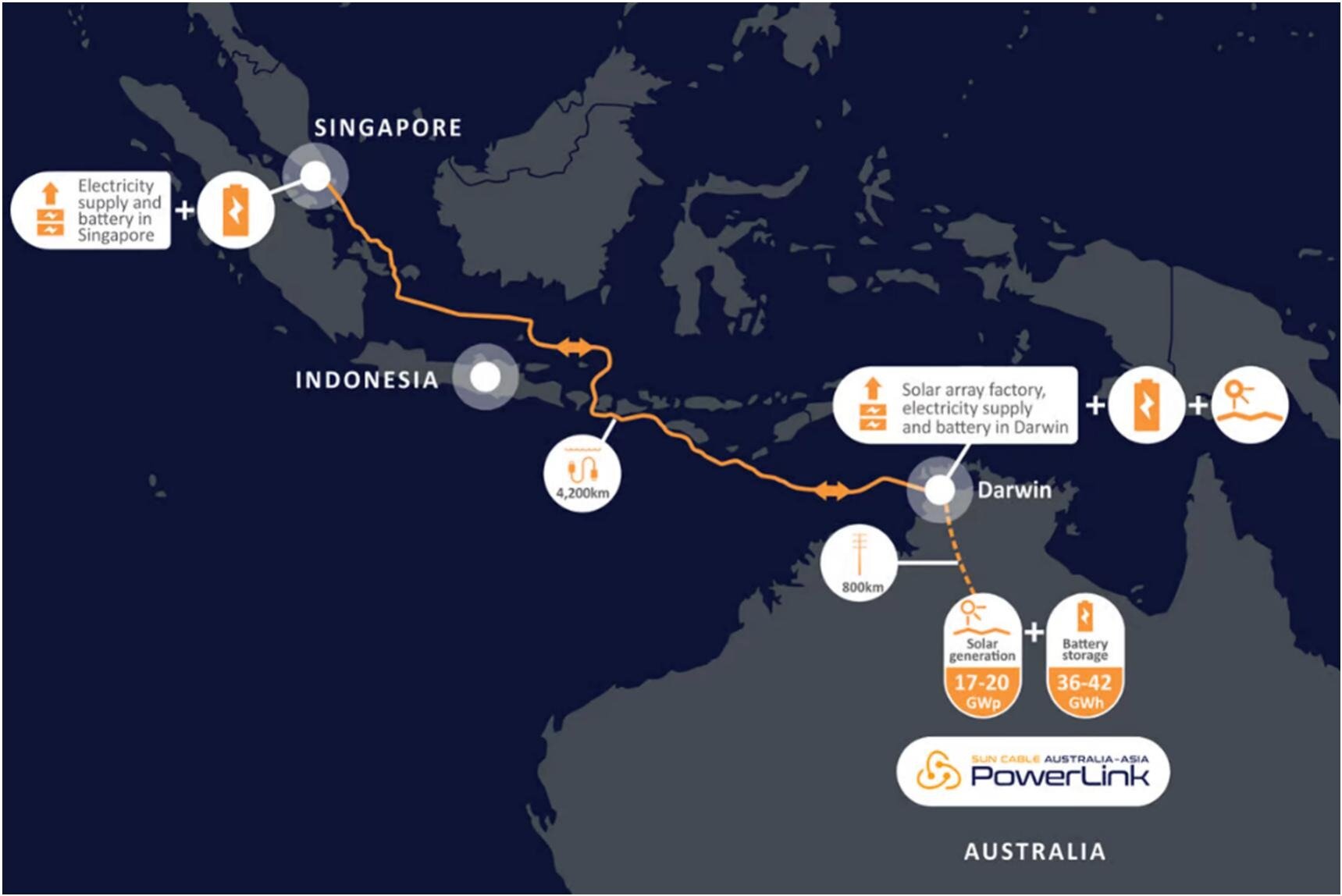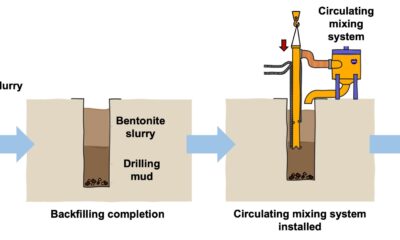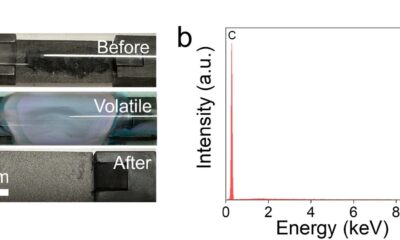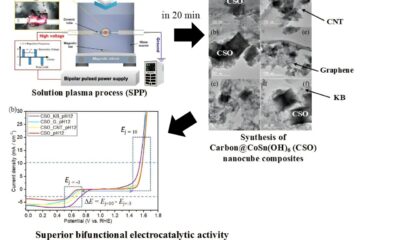Tech
Research reveals how Australians really feel about the world’s largest proposed solar farm

Australians are substantially supportive of renewable megaprojects, but their approval begins to wane if the produced energy doesn’t benefit them, according to a new study examining social acceptance of the proposed world’s largest solar plant.
The study by Charles Darwin University (CDU) examined the public acceptance of the Australia-Asia PowerLink, a 12,000-ha solar megaproject proposed to be developed in the Barkly region of the Northern Territory.
Once developed, it’s intended to export most of the solar energy produced overseas.
The study surveyed people from around Australia to gain insights into their attitudes towards renewable energy and the proposed project. “Made in Australia, used in Asia: Public acceptance and the cable controversy of Australia-Asia PowerLink, a remote solar megaproject” was published in the journal Energy Research & Social Science.
The results showed 89% of respondents supported the construction of the project and agreed the remote Northern Territory was the perfect place to build it.
Lead author Professor Kerstin Zander, who is from CDU’s Northern Institute, said approval of this project declined when respondents were asked if they agreed it was acceptable to export energy overseas.
Fifty-four percent of respondents said it was acceptable to export energy overseas. More than half the respondents who found it unacceptable would change their minds if the produced solar energy was used exclusively in Australia.
“While our results indicate that the developer might have a social license to build the solar megafarm, they do not necessarily have it for exporting a large proportion of the energy,” Professor Zander said.
“Part of this may be entangled with concern about the cable itself, there may also be concerns related to distributive justice. Unlike in Europe, where energy moves relatively freely among countries in the European Union, only half of the respondents considered it fair to produce the energy on Australian land then export most of it for use in a different country.
“What may be needed to raise acceptance is further consultation and awareness raising for potential benefits of the planned strategy, especially the lower greenhouse gas production in Asia if it is replaced by Australian renewable solar power.”
Further results include 78% of respondents agreed renewable energy production is needed to reduce Australia’s carbon emissions, and 89% agreed the Northern Territory was the perfect place to have such a large-scale renewable energy project.
This paper follows previous research conducted by Professor Zander regarding the public’s views of this proposed project.
More information:
K.K. Zander et al, Made in Australia, used in Asia: Public acceptance and the cable controversy of Australia-Asia PowerLink, a remote solar megaproject, Energy Research & Social Science (2025). DOI: 10.1016/j.erss.2025.104079
Citation:
Research reveals how Australians really feel about the world’s largest proposed solar farm (2025, September 26)
retrieved 26 September 2025
from https://techxplore.com/news/2025-09-reveals-australians-world-largest-solar.html
This document is subject to copyright. Apart from any fair dealing for the purpose of private study or research, no
part may be reproduced without the written permission. The content is provided for information purposes only.
Tech
6 Great After-Christmas Deals to Spend Your Gift Cards On

After-Christmas deals are an excellent way to redeem any gift cards or cash you got for Christmas. You can purchase something you actually want, and you can do it for less money than usual. I’ve scoured the Internet for truly good after-Christmas deals on the gear that we’ve hand-tested on the WIRED Reviews team. Many of these sales will end this weekend, so keep that in mind while you’re shopping. Find all the highlights below.
For more inspiration, check out some of our recently updated buying guides, including the Best Office Chairs, the Best Cheap Phones, and the Best Space Heaters.
WIRED Featured Deals:
Anker Laptop Power Bank for $88 ($47 off)
We love this beefy power bank. Its 25,000-mAh capacity is more than enough for fully charging your iPhone between 4 and 6 times, and it can deliver up to 165 watts to two devices meaning that you can charge your laptop, gaming console, or anything else you fancy. The built-in USB-C cable doubles as a carrying loop. There’s also a nifty display that’ll give you at-a-glance information on remaining battery, temperature, charging speeds, and more. It has pass-through charging support and only takes about two hours to fully recharge. This deal price matches what we saw on Black Friday.
Google Pixel 10 for $599 ($200 off)
There was an on-page coupon (PIXEL10) that had the best price we’ve tracked for any of the phones in the Google Pixel 10 lineup. That coupon is not available as of Saturday morning, but it may be back—clip it if you see it. This is still a good deal on the smartest Android phones you can buy, with fantastic cameras, snappy processors, gorgeous displays, and more AI integration than the average person needs. Check out our dedicated buying guide to figure out which Google Pixel 10 is right for you. If you’re in the market for an upgrade, now is a good time to buy considering that we’ve never seen any phone in this flagship lineup sell for less.
Bruvi BV-01 Brewer Bundle for $228 ($120 off)—Clip the Coupon
I’ve tested a lot of pod coffee makers, and the Bruvi BV-01 is my favorite. This deal price is the best we see outside of special events like Black Friday and Cyber Monday. The brewer is cute and looks great on a counter, with a large reservoir, an intuitive touchscreen display, and a built-in wastebin that collects used pods for you. The best part are the proprietary B-Pods, which are designed to biodegrade in a landfill. The bundle gets you the machine plus an assortment of bestselling coffee and espresso pods to get you started.
Fitbit Charge 6 for $100 ($60 off)
The Fitbit Charge 6 has been at the top of our fitness tracker buying guide since we first tested it. It’s attractive, affordable, accessible, and on sale for a match of the best deal we’ve seen. It’ll play well with iOS and Android, and it has a solid suite of features that’ll cover almost anyone’s needs—including skin temperature, heart rate readings, ECGs, activity and workout tracking, and more. The battery lasts for at least a week on a single charge. This deal comes with a six-month subscription to Fitbit Premium, which normally costs $10 per month.
Hydro Flask Standard Mouth Water Bottle for $30 ($10 off)
This budget-friendly deal gets you a steal on the best reusable water bottle. Hydro Flask bottles are durable, portable, and easy to cover in all the stickers you’ve been hoarding. The handle is flexible, the bottle is leakproof, and every component is dishwasher safe (though you may want to opt for hand-washing if you do end up plastering it in stickers). A few different colors are on sale at this price.
Beats Powerbeats Pro 2 for $200 ($50 off)
If hitting the gym is one of your New Year’s resolutions for 2026, the Beats Powerbeats Pro 2 are worth considering. They’re the best workout headphones we’ve tested thanks to their comfortable and ergonomic fit, noise cancelation, spatial audio, a heart rate monitor, and the fact that they play well with both iOS and Android phones. The sound is solid, the battery life is good, and they’re water-resistant. This deal price comes within $20 of the best we’ve seen. Every color—orange, lavender, grey, and black—is on sale.
Power up with unlimited access to WIRED. Get best-in-class reporting and exclusive subscriber content that’s too important to ignore. Subscribe Today.
Tech
Hyperkin’s Competitor Upgrades the Xbox Controller by Copying Sony’s Design

The most immediately striking difference is that Hyperkin’s product swaps the typical Xbox approach of asymmetric thumbsticks for the PlayStation’s horizontal layout. It also separates the D-pad (it’s one piece inside the pad, but splits its cardinal directions so each appears to be its own button), while the ABXY face buttons are spaced slightly further apart. Where the DualSense’s touchpad would sit, we have the Xbox home, menu, view, and share buttons, all blended in rather smartly. An LED ring around the home button just about echoes the lights running the periphery of the DualSense’s touchpad, although it’s really more of an inversion of the regular Xbox controller, where the home button itself lights up.
The Competitor’s thumbsticks come equipped with thumbcaps that mirror the PS5’s, an outer ring with a convex central point, but a pair of Xbox-standard concave caps are included. These easily pop on and off, and can be mixed and matched, if you were so (strangely) inclined.
There are two areas where this departs from both the standard Xbox and PlayStation controllers in terms of inputs. The first is the presence of two programmable rear buttons, M1 and M2. By default, these duplicate the input of the A and B buttons, but holding down the Mode button between them lets you remap them. There are also physical button locks to prevent their use entirely. The other is that while the Competitor boasts a 3.5-mm headphone jack like Microsoft’s official pad, it adds a built-in audio mute button, hidden in the black between the thumbsticks—a nice little upgrade.
Oddly Familiar
In use, the Competitor feels … well, a lot like a PS5 pad. The slightly wider grip fits in the hand comfortably, all inputs are accessible, and those symmetrical thumbsticks sit nicely in reach for all but the smallest hands. A microtextured underside provides a solid grip that, when coupled with its 232-gram weight, makes the Competitor feel particularly suited to longer play periods. It’s all very familiar if you’re already a multiformat gamer, to the extent that it sometimes slightly threw my muscle memory off, reaching a thumb out to do a PlayStation touchpad function and finding only the Xbox system buttons.
Photograph: Matt Kamen
Tech
In Cryptoland, Memecoin Fever Gives Way to a Stablecoin Boom

When US president Donald Trump launched his own meme cryptocurrency on January 17, days before his return to the White House, I was halfway up a Swiss alp, attending a crypto conference in the town of St. Moritz.
Memecoins, which typically have no purpose beyond financial speculation, were having a moment. The previous year, millions of new memecoins had flooded the market; a few, like Fartcoin, had rocketed to billion-dollar valuations. Pump.Fun, a platform for launching and trading memecoins, had become one of the fastest-growing crypto launchpad businesses ever. Now, the soon-to-be president was getting in on the act.
Over lunch on the second day of the conference, beneath the ornate stucco ceiling and golden chandeliers of the venue’s dining hall, I located a table designated for a conversation about memecoins. Whereas other tables were half full, the memecoin workshop was oversubscribed; latecomers pulled up chairs to create two full rows.
The discussion was led by Nagendra Bharatula, founder of investment firm G-20 Group. Bharatula had recently coauthored a paper arguing that memecoins, despite their juvenile spirit, had a place in professional investors’ portfolios. In the six months prior, a basket of 25 “bluechip memecoins”—an oxymoron if ever there was one—had outperformed bitcoin by 150 percent, he pointed out. Some of the attendees murmured their approval.
Since then, the shine has come off the memecoin market. The paper value of Trump’s coin, which climbed to a peak of $14 billion two days after its launch, has cratered to roughly $1 billion. Hundreds of thousands of small investors lost their shirts. Pump.Fun’s daily revenue, a proxy for the overall appetite for memecoin trading, is barely more than a tenth of what it was in January. The memecoin gold rush has spawned a raft of litigation.
Next up: the stablecoin. If memecoins are symbolic of reckless abandon and unflinching profiteering in cryptoland, stablecoins are a symbol of the industry’s search for purpose and respectability. Designed to hold a steady $1 valuation, stablecoins are pitched by proponents as a faster and cheaper way to make everyday payments and international money transfers.
In a year in which the US has declared itself open for crypto business, where previously crypto firms feared regulatory backlash under the Biden administration, stablecoins have supplanted memecoins as the coin à la mode—and punctured the mainstream.
Though stablecoins have been around since 2014, they have predominantly been used by crypto traders as a safe harbor during bouts of market volatility, not by regular people. The concept has also faced resistance from regulators skeptical of a new form of money; Diem, a stablecoin venture incubated at Meta, famously shuttered in 2022 in the face of broad-based opposition.
-
Sports1 week ago
Alabama turned Oklahoma’s College Football Playoff dream into a nightmare
-

 Entertainment1 week ago
Entertainment1 week agoRare look inside the secret LEGO Museum reveals the system behind a toy giant’s remarkable longevity
-

 Business1 week ago
Business1 week agoGold prices in Pakistan Today – December 20, 2025 | The Express Tribune
-

 Business1 week ago
Business1 week agoRome: Tourists to face €2 fee to get near Trevi Fountain
-

 Entertainment1 week ago
Entertainment1 week agoIndia drops Shubman Gill from T20 World Cup squad
-

 Entertainment1 week ago
Entertainment1 week agoZoe Kravitz teases fans with ring in wedding finger
-

 Tech1 week ago
Tech1 week agoWe Tried and Tested the Best Gifts for Plant Lovers With Our Own Green Thumbs
-

 Fashion1 week ago
Fashion1 week agoColumbia launches star-studded US Curling team uniforms for 2026















.png)






-Reviewer-Photo-SOURCE-Ryan-Waniata.jpg)




